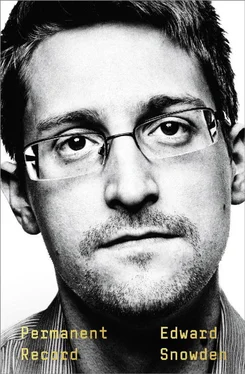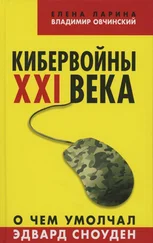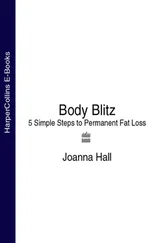Her whisper had a mournful urgency I’d never heard before, and it terrified me: “What did you do?”
Had I known, I would have told her. Instead, I asked, “Who is it?”
“Los Alamos, the nuclear laboratory.”
“Oh, thank God.”
I gently pried the phone away from her and sat her down. “Hello?”
On the line was a friendly representative from Los Alamos IT, who kept calling me Mr. Snowden. He thanked me for reporting the problem and informed me that they’d just fixed it. I restrained myself from asking what had taken so long—I restrained myself from reaching over to the computer and immediately checking the site.
My mother hadn’t taken her eyes off me. She was trying to piece together the conversation, but could only hear one side. I gave her a thumbs-up, and then, to further reassure her, I affected an older, serious, and unconvincingly deep voice and stiffly explained to the IT rep what he already knew: how I’d found the directory traversal problem, how I’d reported it, how I hadn’t received any response until now. I finished up with, “I really appreciate you telling me. I hope I didn’t cause any problems.”
“Not at all,” the IT rep said, and then asked what I did for a living.
“Nothing really,” I said.
He asked whether I was looking for a job and I said, “During the school year, I’m pretty busy, but I’ve got a lot of vacation and the summers are free.”
That’s when the lightbulb went off, and he realized that he was dealing with a teenager. “Well, kid,” he said, “you’ve got my contact. Be sure and get in touch when you turn eighteen. Now pass me along to that nice lady I spoke to.”
I handed the phone to my anxious mother and she took it back with her into the kitchen, which was filling up with smoke. Dinner was burnt, but I’m guessing the IT rep said enough complimentary things about me that any punishment I was imagining went out the window.
I don’t remember high school very well, because I spent so much of it asleep, compensating for all my insomniac nights on the computer. At Arundel High most of my teachers didn’t mind my little napping habit, and left me alone so long as I wasn’t snoring, though there were still a cruel, joyless few who considered it their duty to always wake me—with the screech of chalk or the clap of erasers—and ambush me with a question: “And what do you think, Mr. Snowden?”
I’d lift my head off my desk, sit up in my chair, yawn, and—as my classmates tried to stifle their laughter—I’d have to answer.
The truth is, I loved these moments, which were among the greatest challenges high school had to offer. I loved being put on the spot, groggy and dazed, with thirty pairs of eyes and ears trained on me and expecting my failure, while I searched for a clue on the half-empty blackboard. If I could think quickly enough to come up with a good answer, I’d be a legend. But if I was too slow, I could always crack a joke—it’s never too late for a joke. In the absolute worst case, I’d sputter, and my classmates would think I was stupid. Let them. You should always let people underestimate you. Because when people misappraise your intelligence and abilities, they’re merely pointing out their own vulnerabilities—the gaping holes in their judgment that need to stay open if you want to cartwheel through later on a flaming horse, correcting the record with your sword of justice.
When I was a teen, I think I was a touch too enamored of the idea that life’s most important questions are binary, meaning that one answer is always Right, and all the rest of the answers are Wrong. I think I was enchanted by the model of computer programming, whose questions can only be answered in one of two ways: 1 or 0, the machine-code version of Yes or No, True or False. Even the multiple-choice questions of my quizzes and tests could be approached through the oppositional logic of the binary. If I didn’t immediately recognize one of the possible answers as correct, I could always try to reduce my choices by a process of elimination, looking for terms such as “always” or “never” and seeking out invalidating exceptions.
Toward the end of my freshman year, however, I was faced with a very different kind of assignment—a question that couldn’t be answered by filling in bubbles with a #2 pencil, but only by rhetoric: full sentences in full paragraphs. In plain terms, it was an English class assignment, a writing prompt: “Please produce an autobiographical statement of no fewer than 1,000 words.” I was being ordered by strangers to divulge my thoughts on perhaps the only subject on which I didn’t have any thoughts: the subject of me, whoever he was. I just couldn’t do it. I was blocked. I didn’t turn anything in and received an Incomplete.
My problem, like the prompt itself, was personal. I couldn’t “produce an autobiographical statement” because my life at the time was too confusing. This was because my family was falling apart. My parents were getting a divorce. It all happened so fast. My father moved out and my mother put the house in Crofton on the market, and then moved with my sister and me into an apartment, and then into a condominium in a development in nearby Ellicott City. I’ve had friends tell me that you aren’t really an adult until you bury a parent or become one yourself. But what no one ever mentions is that for kids of a certain age, divorce is like both of those happening simultaneously. Suddenly, the invulnerable icons of your childhood are gone. In their stead, if there’s anyone at all, is a person even more lost than you are, full of tears and rage, who craves your reassurance that everything will turn out okay. It won’t, though, at least not for a while.
As the custody and visitation rights were being sorted by the courts, my sister threw herself into college applications, was accepted, and started counting down the days until she’d leave for the University of North Carolina at Wilmington. Losing her meant losing my closest tie to what our family had been.
I reacted by turning inward. I buckled down and willed myself into becoming another person, a shape-shifter putting on the mask of whoever the people I cared about needed at the time. Among family, I was dependable and sincere. Among friends, mirthful and unconcerned. But when I was alone, I was subdued, even morose, and constantly worried about being a burden. I was haunted by all the road trips to North Carolina I’d complained through, all the Christmases I’d ruined by bringing home bad report cards, all the times I’d refused to get off-line and do my chores. Every childhood fuss I’d ever made flickered in my mind like crime-scene footage, evidence that I was responsible for what had happened.
I tried to throw off the guilt by ignoring my emotions and feigning self-sufficiency, until I projected a sort of premature adulthood. I stopped saying that I was “playing” with the computer, and started saying that I was “working” on it. Just changing those words, without remotely changing what I was doing, made a difference in how I was perceived, by others and even by myself.
I stopped calling myself “Eddie.” From now on, I was “Ed.” I got my first cell phone, which I wore clipped to my belt like a grown-ass man.
The unexpected blessing of trauma—the opportunity for reinvention—taught me to appreciate the world beyond the four walls of home. I was surprised to find that as I put more and more distance between myself and the two adults who loved me the most, I came closer to others, who treated me like a peer. Mentors who taught me to sail, trained me to fight, coached me in public speaking, and gave me the confidence to stand onstage—all of them helped to raise me.
Читать дальше












